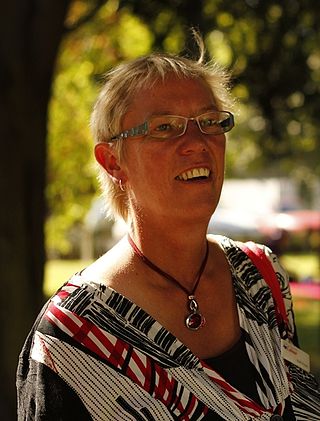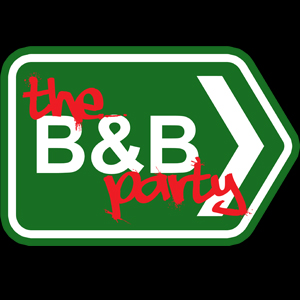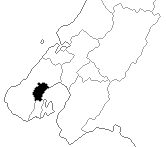The Christian Heritage Party of New Zealand was a New Zealand political party espousing Christian values and conservative views on social policy. Although it never won seats in an election, it came close to doing so in 1996 as part of the Christian Coalition and briefly had a member in Parliament.

The 1996 New Zealand general election was held on 12 October 1996 to determine the composition of the 45th New Zealand Parliament. It was notable for being the first election to be held under the new mixed-member proportional (MMP) electoral system, and produced a parliament considerably more diverse than previous elections. Under the new MMP system, 65 members were elected in single-member districts by first-past-the-post voting, while a further 55 "top-up" members were allocated from closed lists to achieve a proportional distribution based on each party's share of the nationwide party vote.

The Tauranga by-election was a by-election in the New Zealand electorate of Tauranga, a city in New Zealand's North Island. It took place on 17 April 1993, and was precipitated by the resignation from parliament of sitting MP Winston Peters. Peters, who had been increasingly at odds with his National Party colleagues, had resigned both from his party and from Parliament. He contested the seat as an independent.

Metiria Leanne Agnes Stanton Turei is a New Zealand academic and former politician. She was a Member of Parliament from 2002 to 2017 and the female co-leader of the Green Party of Aotearoa New Zealand from 2009 to 2017. Turei resigned from the co-leader position on 9 August 2017 amid a political controversy arising from her admission to lying to the Ministry of Social Development to receive higher payments when she was on the Domestic Purposes Benefit and later, to being enrolled to vote in an electorate where she was not eligible when she was 23.

Aotearoa Legalise Cannabis Party (ALCP), also known as the Cannabis Party, is a political party in New Zealand. It is dedicated to the legalisation of cannabis for medical, recreational and industrial use. It was founded in 1996 and has stood in every general election since, but has never won representation in Parliament. Several of its members have gone on to political success after leaving the party.

Gordon Frank Copeland was a New Zealand politician who served as a Member of Parliament from 2002 to 2008. He entered the House of Representatives as a list MP for the United Future New Zealand Party from 2002 but he resigned from the party in 2007. In March 2009, Copeland became Party President of The Kiwi Party, which he had co-founded with another former United Future list MP, Larry Baldock, in May 2007. Copeland stood for the Conservative Party in the 2011 New Zealand general election. Prior to entering Parliament he held a number of corporate positions before working as the financial administrator for the Roman Catholic Archdiocese of Wellington.

Ruth Suzanne Dyson is a former New Zealand politician. She was a Labour Party Member of Parliament from 1993 to 2020. She represented the Port Hills electorate from the 2008 election election to 2020. She also held a number of senior offices in the Labour Party, including president.
The Communist League is a New Zealand communist party.
Merepeka Raukawa-Tait is a New Zealand politician and former chief executive of the Women's Refuge organisation of New Zealand. She is currently a councilor at large for the Rotorua District Council. She previously stood as a candidate for Parliament, serving briefly as deputy leader of the small Christian Heritage Party.
Graeme William Cairns is a New Zealand musician, artist, and political candidate. Originally from Scotland, he is perhaps best known for his role as "Laird McGillicuddy", chief of the Clan McGillicuddy, and as the only-ever leader of the Clan's satirical McGillicuddy Serious political party. In the 1996 election, he was, at 65, the lowest-ranked candidate on their party list. At the next election in 1999, when he stood in the Port Waikato electorate, he was in first rank on the party list. In 2006, he built a toothbrush fence as an absurdist art project.

The McGillicuddy Highland Army is the fighting wing of New Zealand's Clan McGillicuddy and does battle with enemies of the Clan in accordance with the rules of the pastime of pacifist warfare. Battles have taken place at wide range of locations and events around the country. During the period 1984–1999 it shared many members in common with the Clan's political wing, the better-known McGillicuddy Serious Party.

The 1905 New Zealand general election was held on Wednesday, 6 December in the general electorates, and on Wednesday, 20 December in the Māori electorates to elect a total of 80 MPs to the 16th session of the New Zealand Parliament. A total number of 412,702 voters turned out, with 396,657 voting in the European electorates.

Wairarapa is a New Zealand parliamentary electorate. It was first created in 1858 and existed until 1881. It was recreated in 1887 and has since existed continuously. The current Wairarapa electorate MP is Mike Butterick.

Waitaki is an electorate for the New Zealand House of Representatives that crosses the boundary of North Otago and South Canterbury towns on the East Coast of the South Island. The electorate was first established for the 1871 election that determined the 5th New Zealand Parliament. It has been abolished and re-established several times and in its early years was a two-member electorate for two parliamentary terms. The current electorate has existed since the 2008 election and is held by Miles Anderson of the National Party.

The Bill and Ben Party was a New Zealand joke political party formed in 2008 and voluntarily deregistered in 2010. The party's leaders were Jamie Linehan and Ben Boyce of the TV3 satirical sports show Pulp Sport. In the 2008 general election the party secured 0.56% of the vote, outpolling every other party not in parliament prior to the election. It gained the ninth-highest number of votes out of the 19 parties standing for election.
Northern Maori was one of New Zealand's four original parliamentary Māori electorates established in 1868, along with Eastern Maori, Western Maori and Southern Maori. In 1996, with the introduction of MMP, the Maori electorates were updated, and Northern Maori was replaced with the Te Tai Tokerau electorate.

Heretaunga is a former New Zealand parliamentary electorate, in the city of Upper Hutt, that existed from 1954 until 1996.

Cecil Godfrey Murgatroyd was an Australian politician, musician, and comedian. He was known for being involved in New Zealand National Politics along with Australian Federal and State Politics, and for his role in the 1998 Australian Constitutional Convention. From 1981 until his death in 2001, he was generally associated with running and standing as a candidate for two non-serious parties: the Imperial British Conservative Party (IBCP) and the McGillicuddy Serious Party (McGSP); which operated in both countries. Murgatroyd's platforms were typically absurdist and of a 'pataphysical' nature.

The 1992 Wellington Central by-election was a by-election held in the Wellington Central electorate during the 43rd New Zealand Parliament, on 12 December 1992. It was caused by the resignation of incumbent MP Fran Wilde after her election as mayor of Wellington and was won by Chris Laidlaw with a majority of 855.

Jessica Hammond is a New Zealand public servant, perennial candidate, playwright, and blogger. Hammond stood for The Opportunities Party for Ōhāriu in the 2017 and 2020 general elections.















